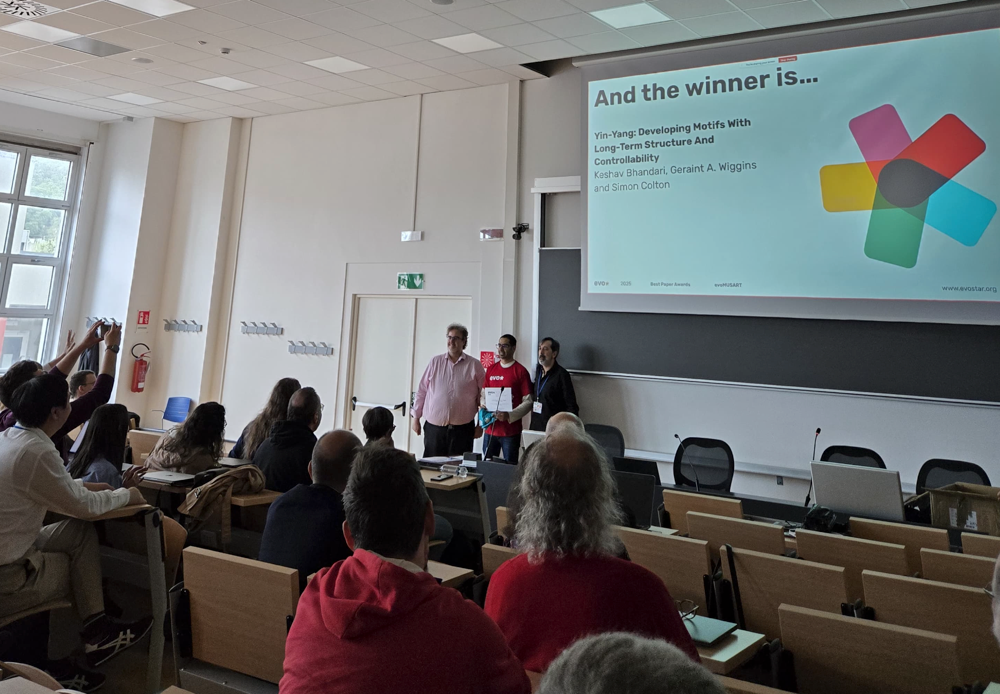AIM at IJCNN 2025
 On 30 June – 5 July 2025, AIM researchers will participate at the IEEE International Joint Conference on Neural Networks (IJCNN 2025), the flagship conference of the IEEE Computational Intelligence Society and the International Neural Network Society.
On 30 June – 5 July 2025, AIM researchers will participate at the IEEE International Joint Conference on Neural Networks (IJCNN 2025), the flagship conference of the IEEE Computational Intelligence Society and the International Neural Network Society.
The following papers authored/co-authored by AIM members will be presented at IJCNN 2025:
- ImprovNet – Generating Controllable Musical Improvisations with Iterative Corruption Refinement, by Keshav Bhandari, Sungkyun Chang, Tongyu Lu, Fareza Rahman Enus, Louis Bradshaw, Dorien Herremans, Simon Colton
- Towards a Unified Representation Evaluation Framework Beyond Downstream Tasks, by Christos Plachouras, Julien Guinot, George Fazekas, Elio Quinton, Emmanouil Benetos, Johan Pauwels
The following presentation from an AIM PhD student will also be made at IJCNN 2025:
- Split Fine-Tuning of BERT-based Music Models in the Edge-Cloud Continuum: An Empirical Analysis, by Bradley Aldous, Wai Fong Tam, Ahmed M. A. Sayed
See you in Rome!

 On 24-28 April, AIM researchers will participate at the
On 24-28 April, AIM researchers will participate at the